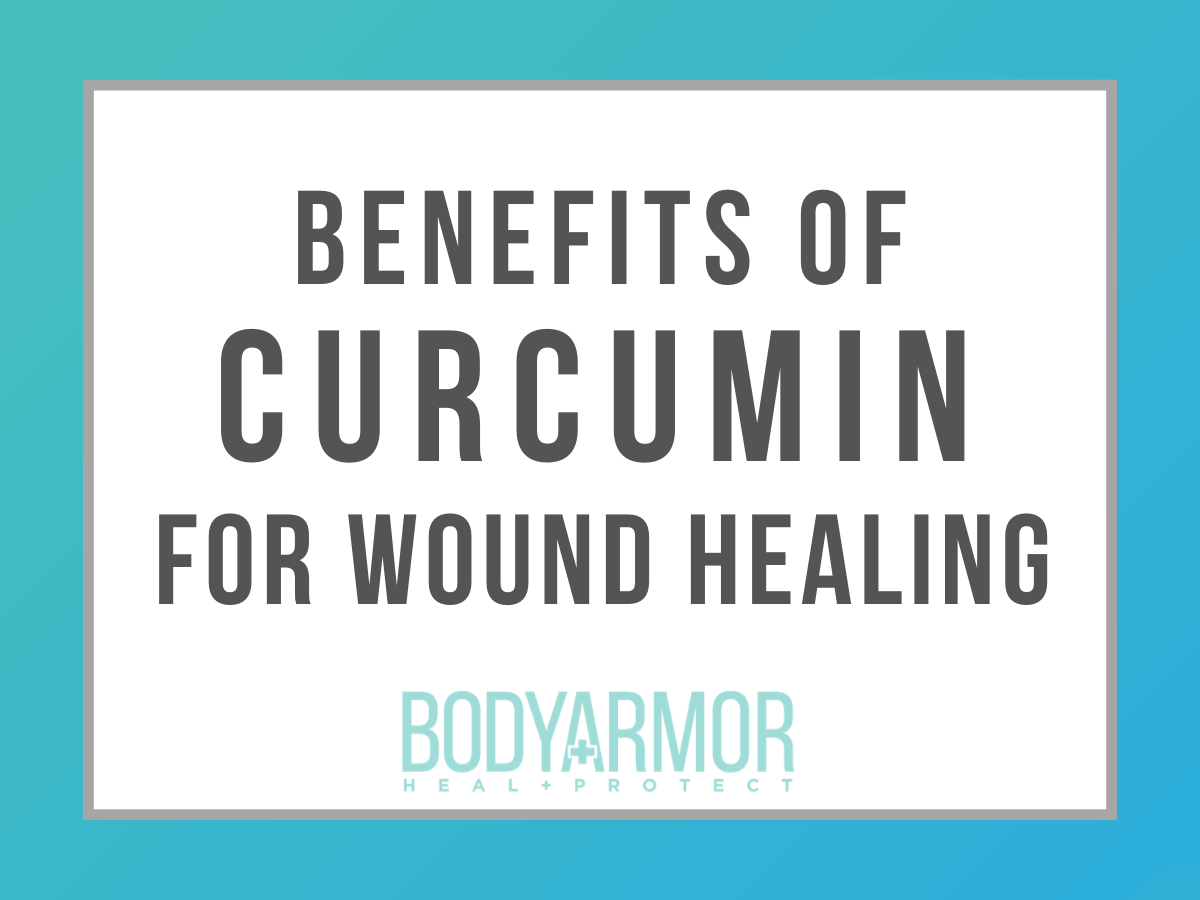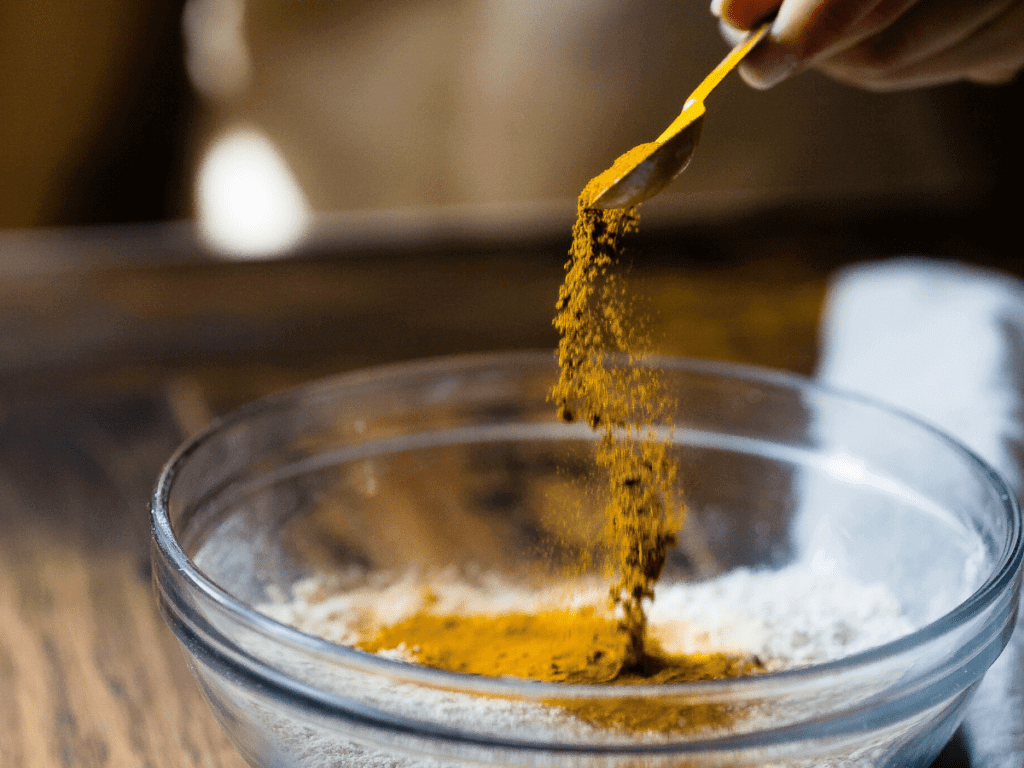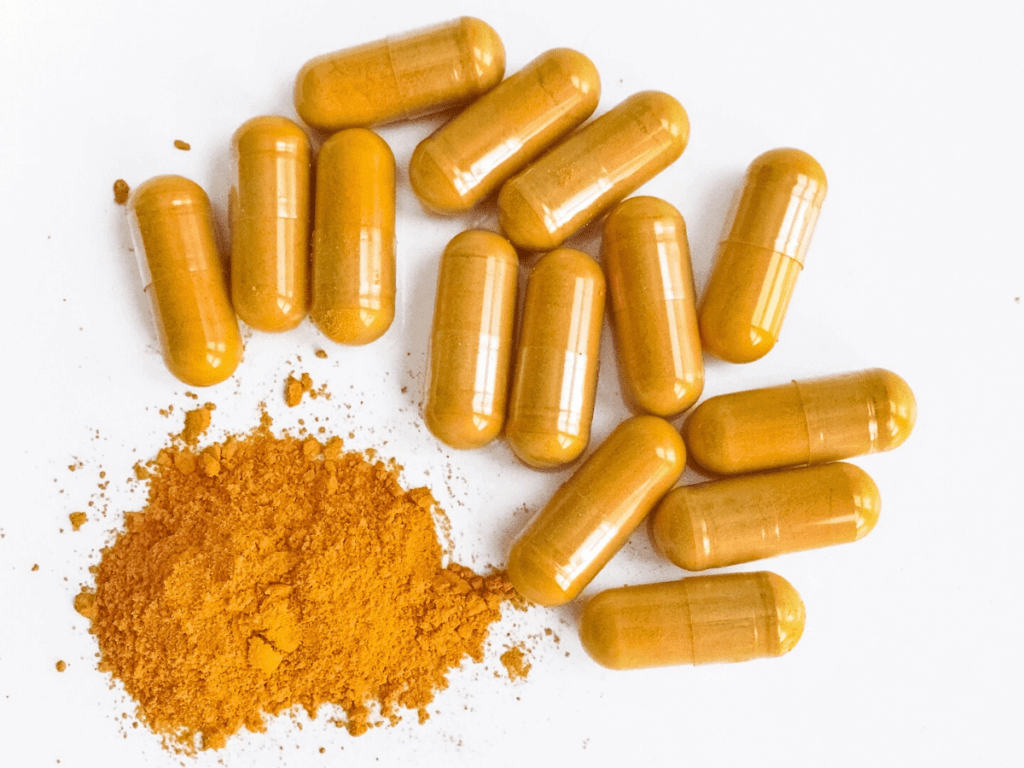
6 Vitamins for Faster Wound Healing (+ the best foods to find them in!)
Here’s our list of the top 6 vitamins to include in your diet to help heal wounds faster!

When you think of curcumin, your first thought may be of the pungent, orange spice used to give dishes like curry a flavorful kick.
But curcumin (which comes from the same plant as the cumin in your kitchen cabinet) is more than just a popular cooking spice. In addition to its distinct flavor, research shows that curcumin has numerous health benefits that aid in wound healing.
Curcumin belongs to a group of plant compounds called curcuminoids, and comes from the Curcuma longa (Turmeric) plant. It’s what gives turmeric its bright yellow/orange color.

This powerful herb has been used in Ayurvedic and herbal medicine for thousands of years. Its medicinal benefits include treating conditions like rheumatism, sinusitis, and even diabetic ulcers.

One of curcumin’s most significant therapeutic benefits is how it helps the body manage inflammation. In the inflammatory phase of wound healing, cytokines, white blood cells, and other immune cells are rushed to the injury site.
Curcumin helps to keep pro-inflammatory cells under control and reduce markers of inflammation. As a result, it can accelerate wound healing by shortening the length of this inflammatory phase.
Curcumin also supports the formation of strong, new healthy tissues. This helps wounds close faster and makes healed sites less likely to re-open.

One study found that curcumin stimulates growth factors directly involved with wound healing. In addition, curcumin’s antioxidant properties help to keep cells healthy and reduce free radicals that can interfere with the healing process.
Research has also shown that curcumin aids in collagen deposition and supports the formation of healthy granulation tissue. Several in vitro studies suggest that topical curcumin application may enhance wound contraction (when the newly formed tissue tightens and pulls the wound closed), as well as reduce scarring.
Some studies have shown that up to 8g per day is safe and effective for short-term use. But most studies use daily curcumin doses between 500-2000mg.
Because individual needs and tolerance will vary, the best way to find out how much curcumin is safe for you is to check with your doctor.

Like most herbs, curcumin may cause side effects if consumed in large amounts. It is contraindicated for people with a clotting disorder, gallbladder disease, and some other medical conditions.
Possible side effects of large doses of curcumin:
Although this herb is safe for most people, it’s important to consult your doctor before implementing any significant dietary changes.